This week we are spotlighting examples of four techniques: chorus vocal structure, duet structure, “D” (Departure) sections, and outros.
Spotlighted songs include:
- Break Up With Your Girlfriend, I’m Bored
- Without Me
- ME!
- Sucker
- Nas X’s Old Town Road
Hit Songs Deconstructed subscribers can read a full analysis of each of these techniques (with corresponding audio clips to hear them in action) in the Hit Songs Deconstructed Techniques Library.
Chorus Vocal Structure Techniques
When it comes to songs in the Hot 100 Top 10, some choruses are more complex than others. However, more complex does not equate to being any less infectious, engaging or memorable than its more simplistic counterparts.
Two recent hits that exemplify this are Ariana Grande’s Break Up With Your Girlfriend, I’m Bored (Hot 100 #2 Hit) and Halsey’s Without Me (Hot 100 #1 Hit). Both songs feature the same core ABAB/CCAB melodic structure but contain numerous sub-parts.
Despite their more complex structure compared to recent hits such as Billie Eilish’s Bad Guy, their infectious melodies along with their methodical arrangements ensure that these choruses keep you engaged and get stuck in your head.
Break Up With Your Girlfriend, I’m Bored
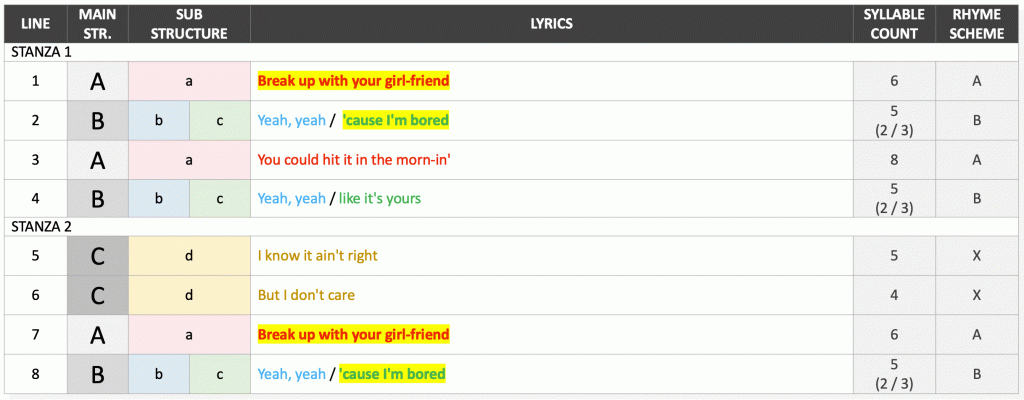
Without Me
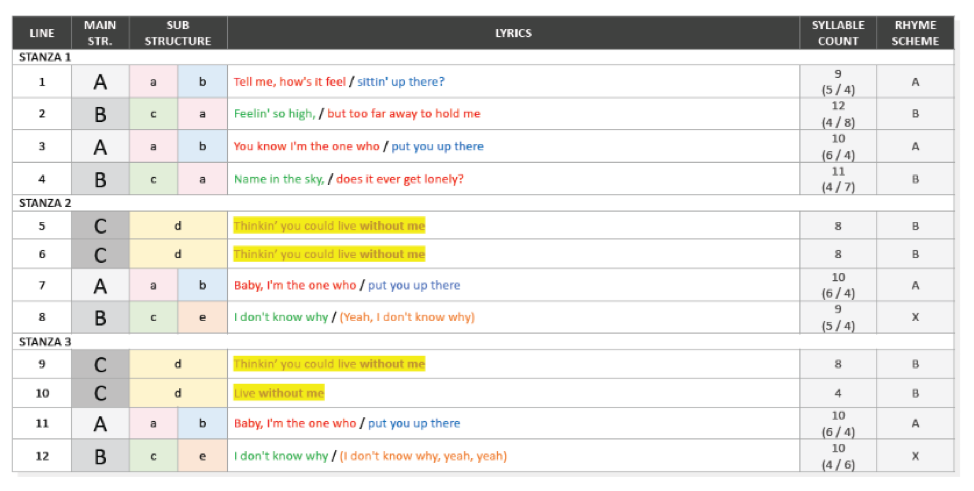
To read a full analysis of these chorus vocal structures and listen to corresponding clips, subscribers can visit the techniques library.
Duet Structure Techniques
While there are many ways to effectively structure a duet, Taylor Swift and Brendon Urie’s ME! pulls out all the stops. It illustrates how a song can effectively heighten memorability, engagement, storyline impact and artist showcasing through strategic in-line, cross-line, cross-stanza and cross-section duet arrangement.
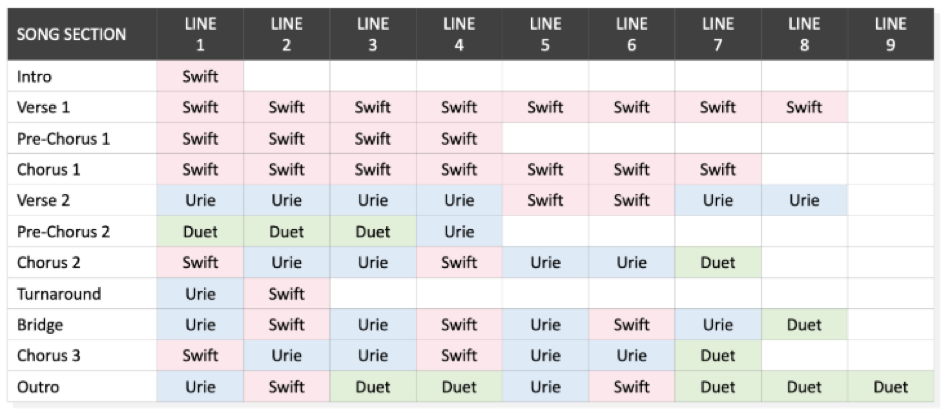
To read a full analysis of ME!’s duet structure and listen to corresponding clips, visit the techniques library.
“D” (Departure) Section Techniques
A “D” (Departure) section is a classification of a song section(s) that occurs around two-thirds of the way into a song. Its purpose is to provide a pronounced lyrical, vocal, instrumental, and/or energy level contrast against the other sections in the song. While the main role of a “D” section is to heighten engagement by breaking up cross-section structural repetition (i.e. a 2x verse – pre-chorus – chorus progression), it can achieve a whole lot more, such as introducing you to new hooks and recycling elements from other sections in fresh ways to heighten memorability. A great example of a recent hit that does both is the Jonas Brothers’ Sucker. While its instrumental break “D” section provides engaging contrast against the other sections in the song, all of its elements – including its three main hooks – have all been hinted at in preceding sections. This is a clever technique to make the “D” section sound familiar while also providing the departure.
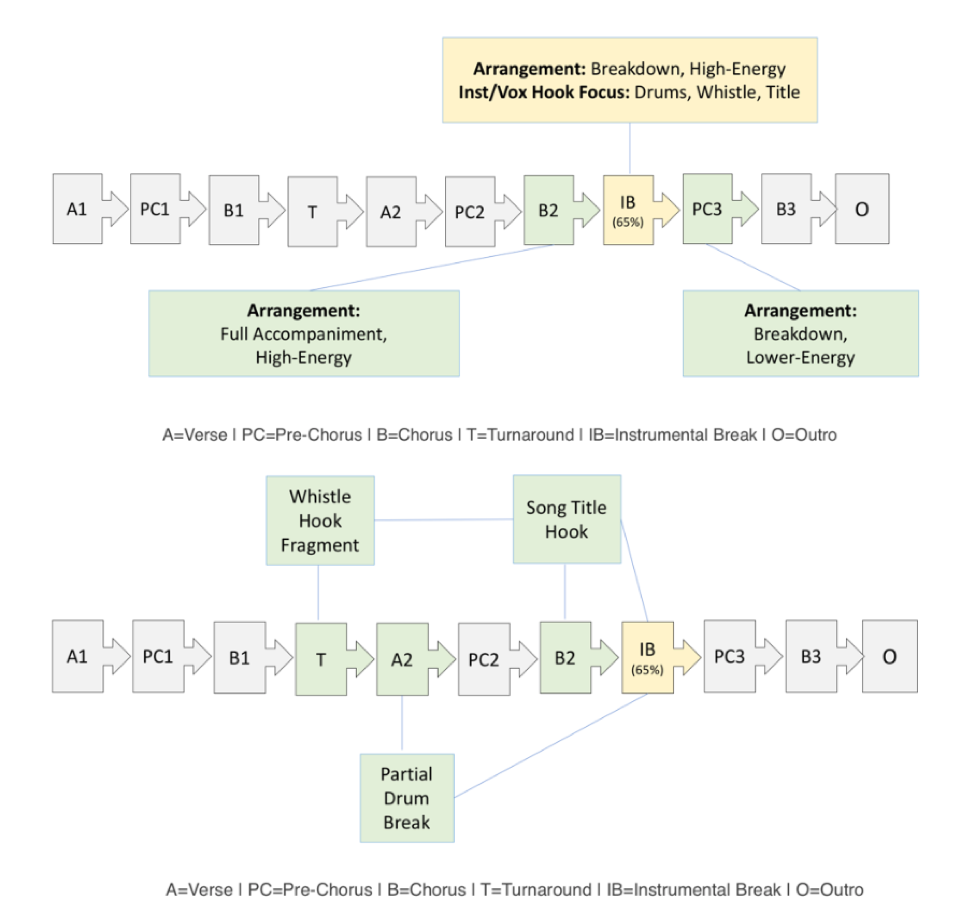
To read a full analysis of Sucker’s “D” section techniques and listen to corresponding clips, subscribers can visit the techniques library.
Outro Techniques (“Wind Down” & “Ramp Up Grand Finale Hook Fest”)
The two main outro techniques that you’ll find in recent hits are what we at Hit Songs Deconstructed call the “Wind Down” and “Ramp Up” techniques. The “Wind Down,” as the name suggests, is where the outro becomes sparser and generally less energetic compared to the section that precedes it, which is most typically the chorus. On the flipside, the “Ramp Up” is where the song becomes more energetic compared to the section that precedes it and leaves the listener on an excited high and wanting more. Two recent hits that exemplify these techniques are Lil Nas X’s Old Town Road (Hot 100 #1 hit, record setter) and Taylor Swift’s ME! (Hot 100 #2 hit). As you’ll see, in addition to simply winding down or ramping up the song as it comes to a conclusion, these outros achieve a whole lot more.
Old Town Road: Wind Down Outro Technique
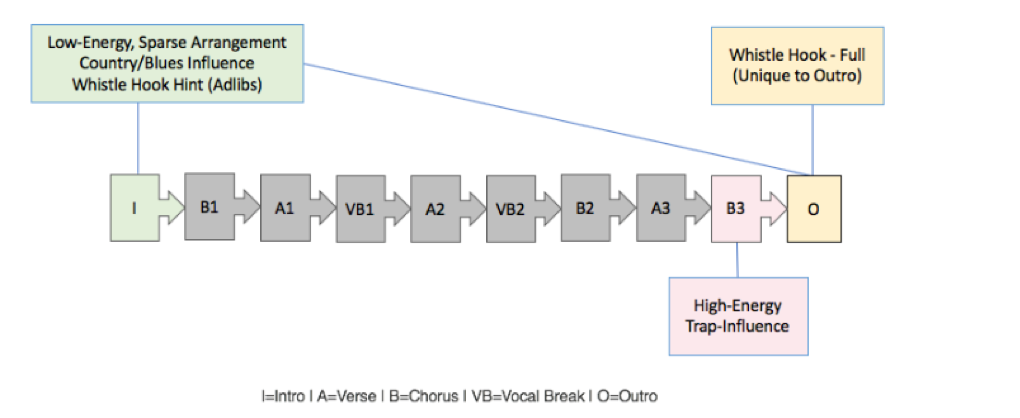
ME!: Ramp Up “Grand Finale Hook Fest” Techique
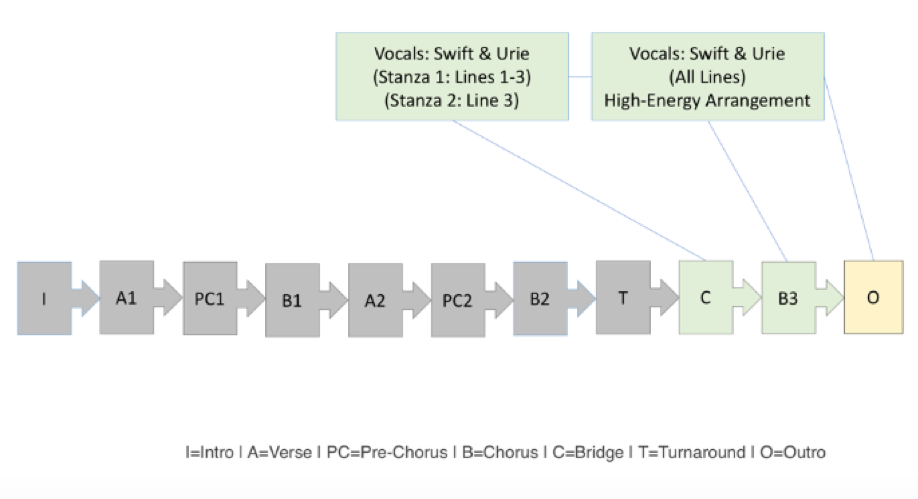
To read a full analysis of these outro techniques and listen to corresponding clips, subscribers can visit the techniques library.
Hit Songs Deconstructed subscribers can read a full analysis of each of these techniques (with corresponding audio clips to hear them in action) in the Hit Songs Deconstructed Techniques Library.
